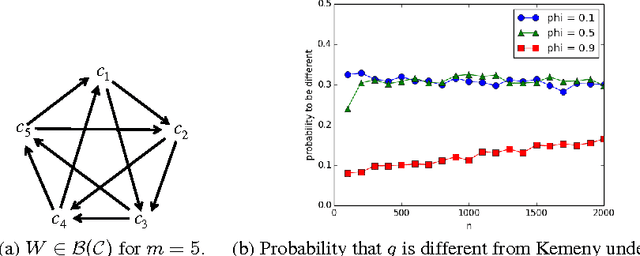A Statistical Decision-Theoretic Framework for Social Choice
Paper and Code
Mar 12, 2016


In this paper, we take a statistical decision-theoretic viewpoint on social choice, putting a focus on the decision to be made on behalf of a system of agents. In our framework, we are given a statistical ranking model, a decision space, and a loss function defined on (parameter, decision) pairs, and formulate social choice mechanisms as decision rules that minimize expected loss. This suggests a general framework for the design and analysis of new social choice mechanisms. We compare Bayesian estimators, which minimize Bayesian expected loss, for the Mallows model and the Condorcet model respectively, and the Kemeny rule. We consider various normative properties, in addition to computational complexity and asymptotic behavior. In particular, we show that the Bayesian estimator for the Condorcet model satisfies some desired properties such as anonymity, neutrality, and monotonicity, can be computed in polynomial time, and is asymptotically different from the other two rules when the data are generated from the Condorcet model for some ground truth parameter.
 Add to Chrome
Add to Chrome Add to Firefox
Add to Firefox Add to Edge
Add to Edge